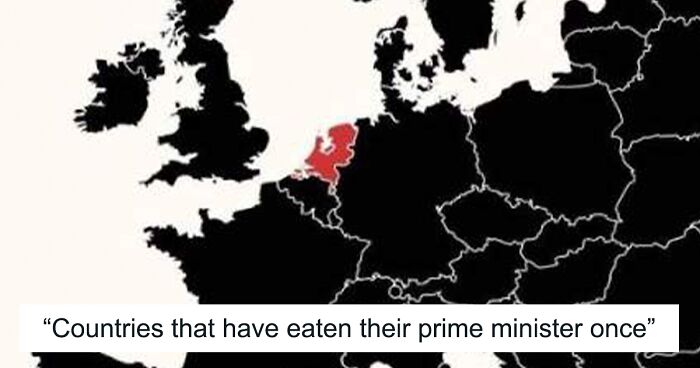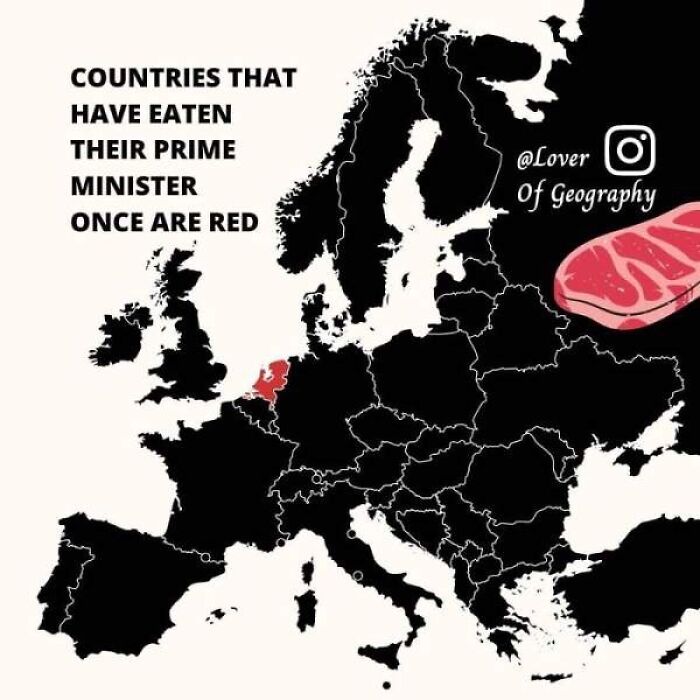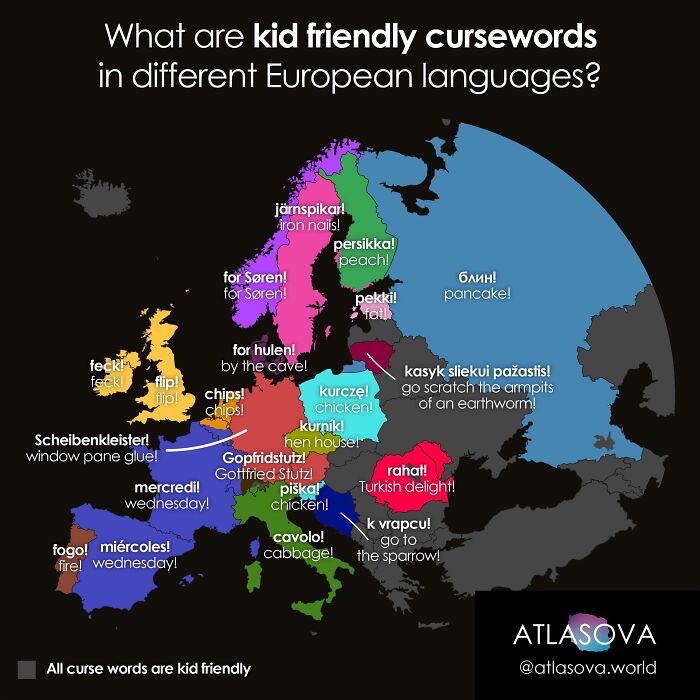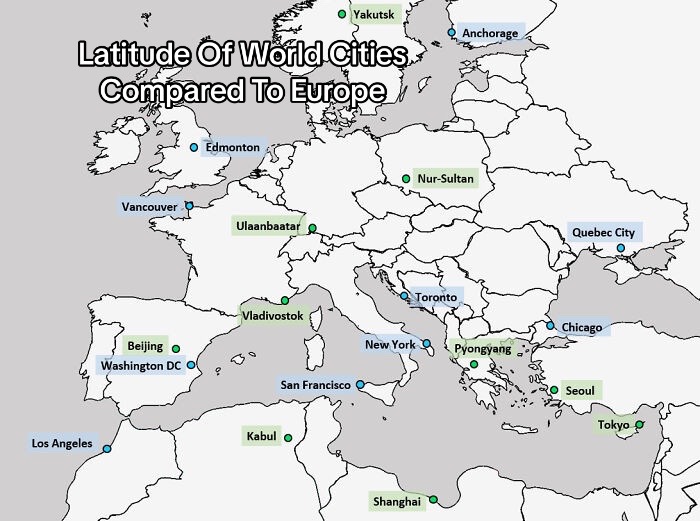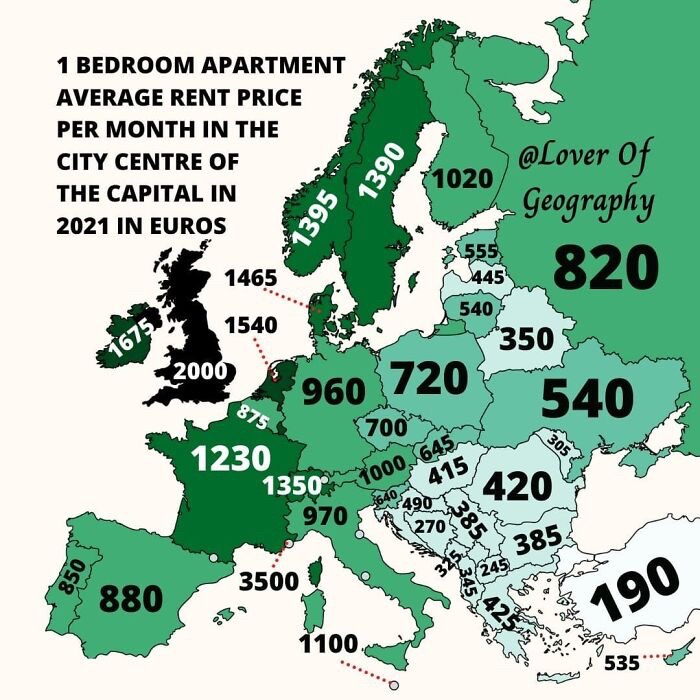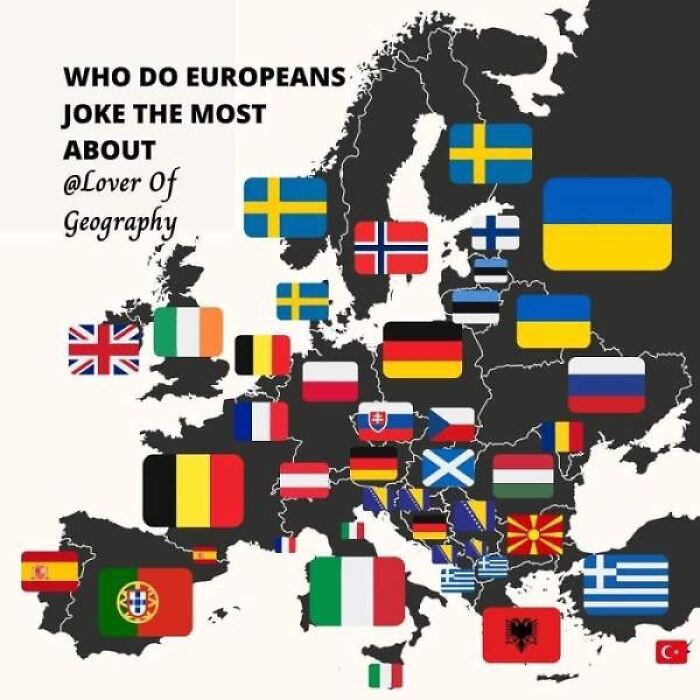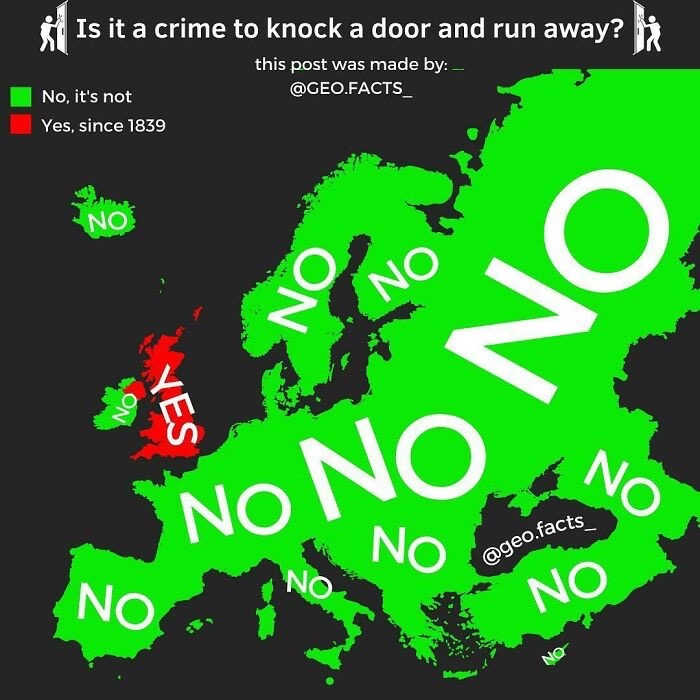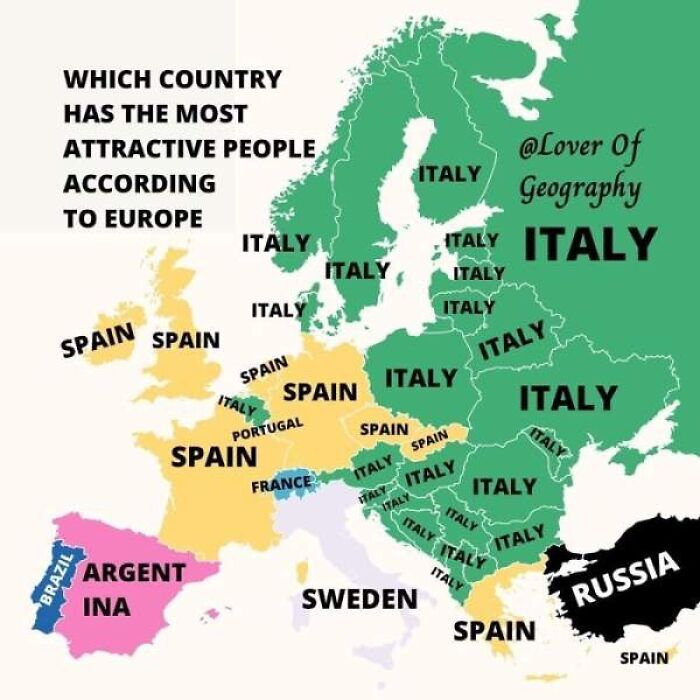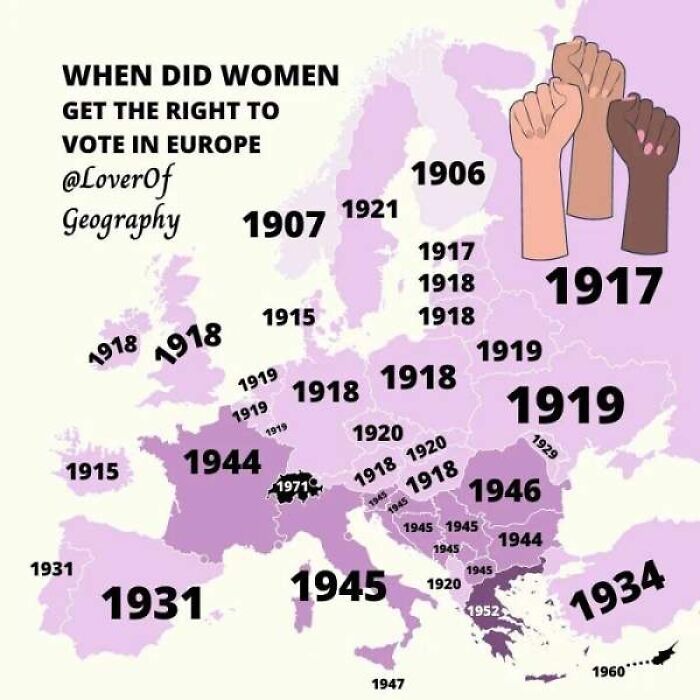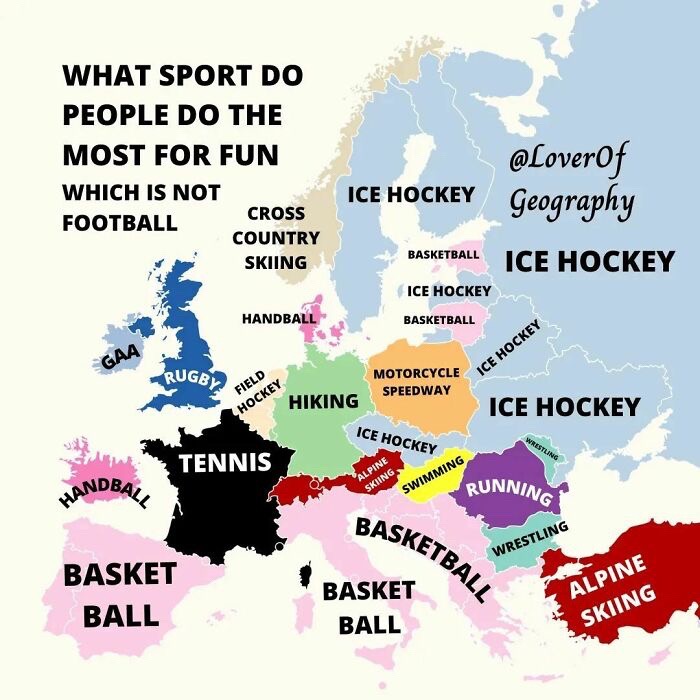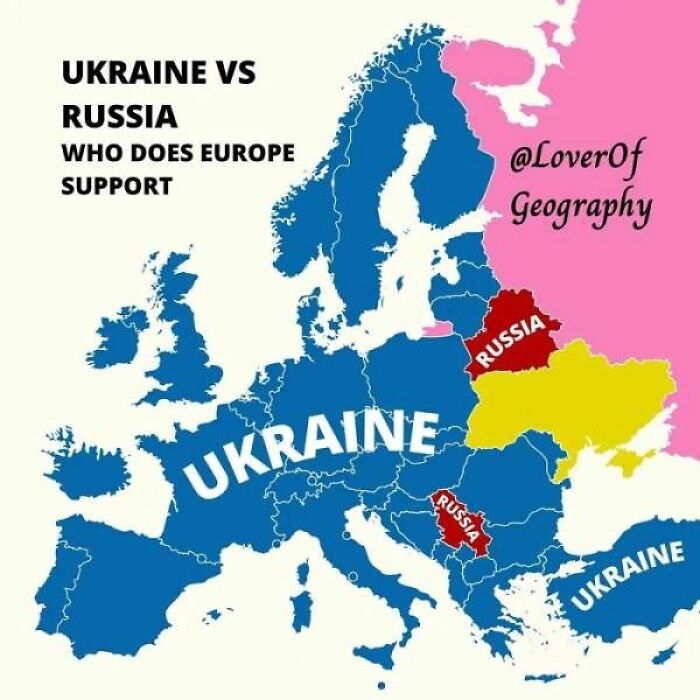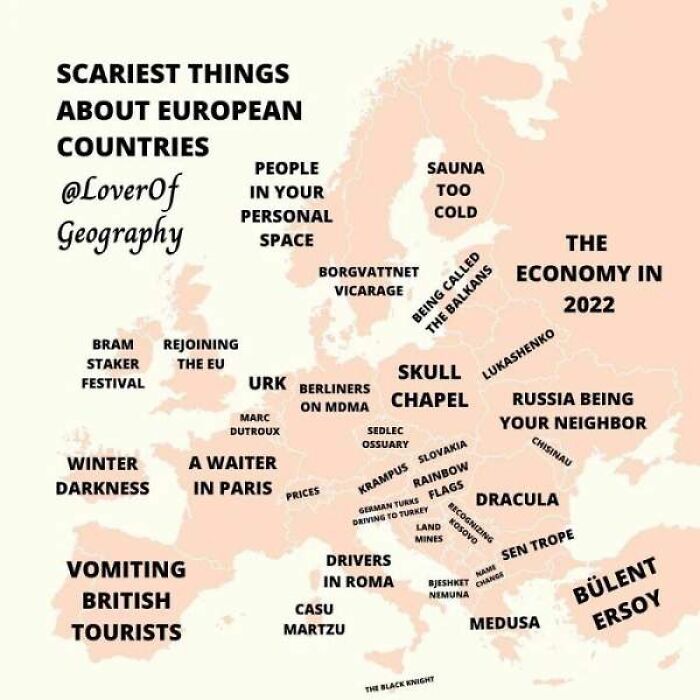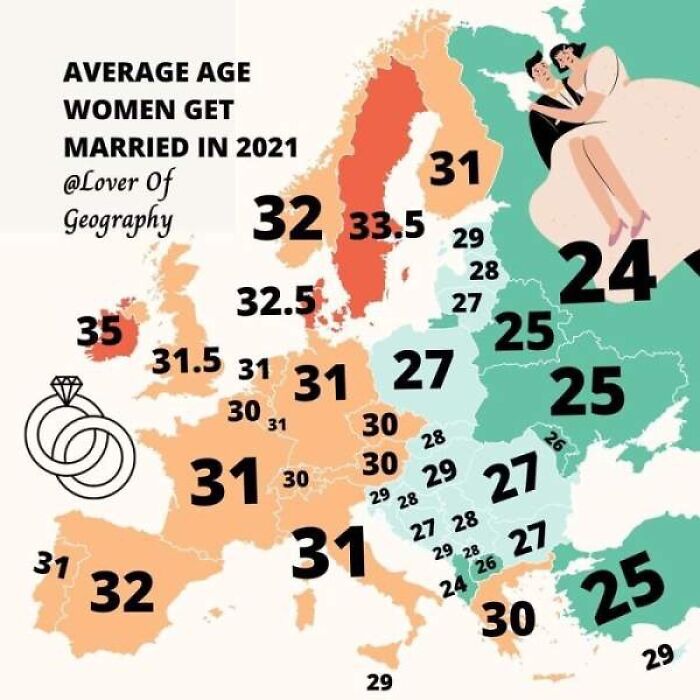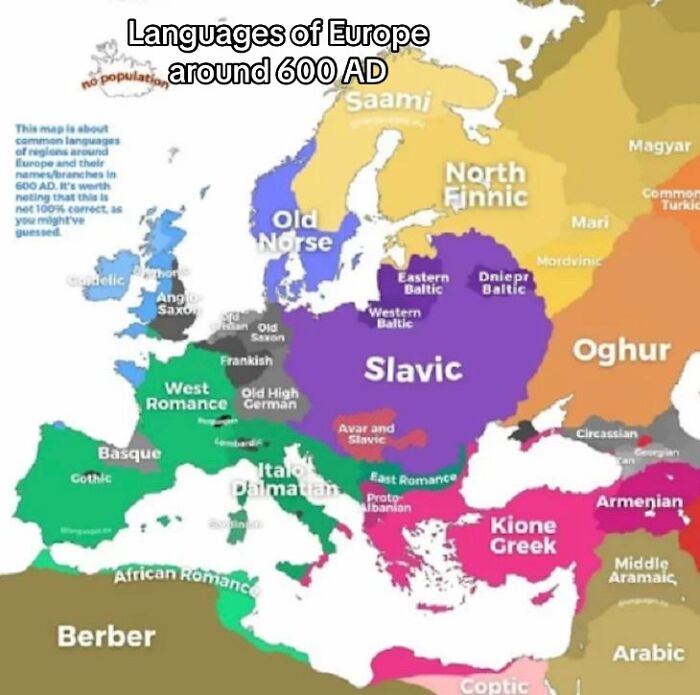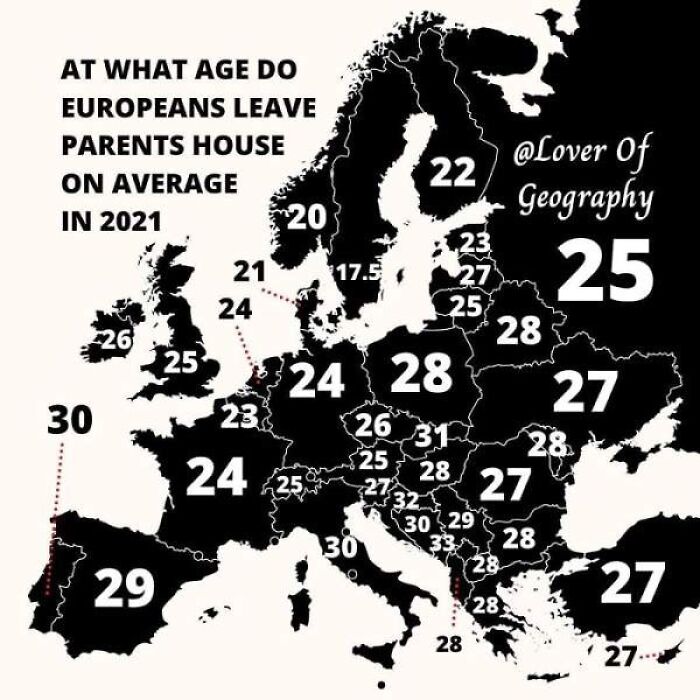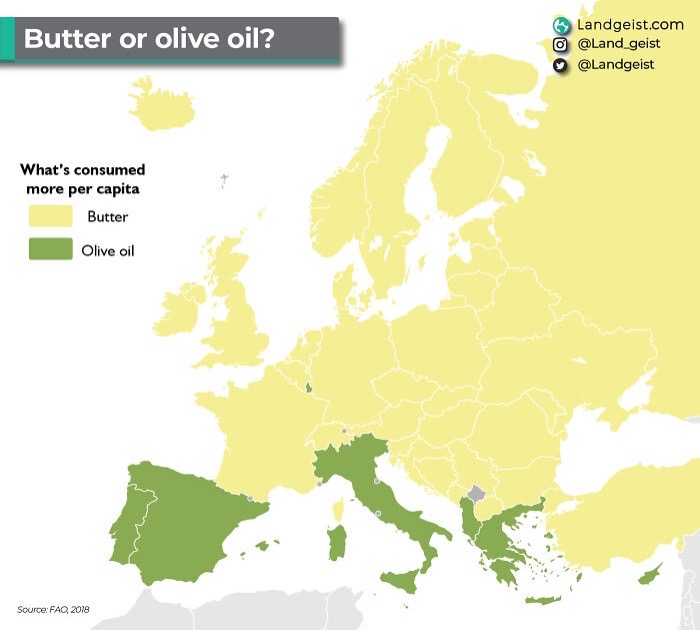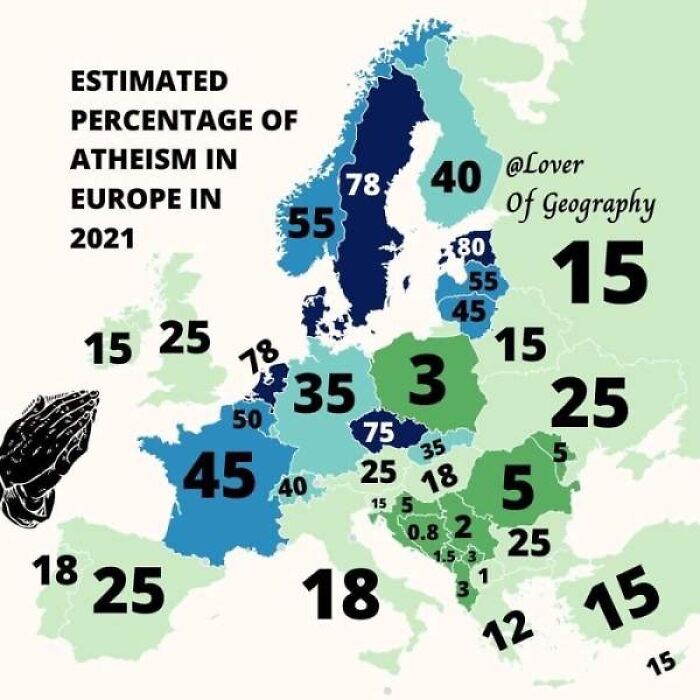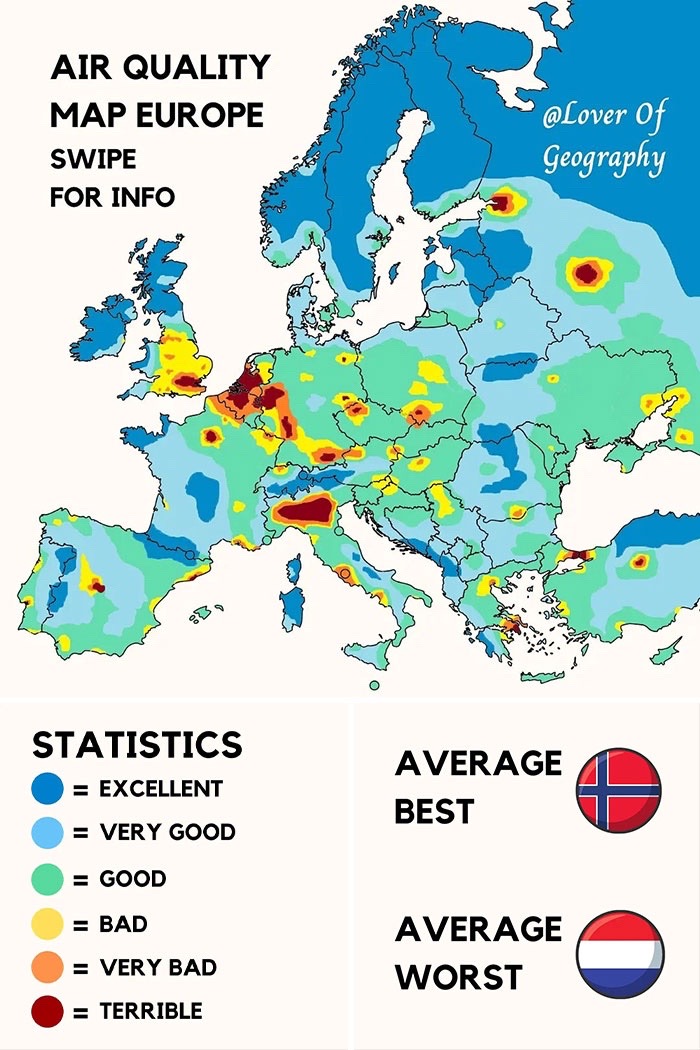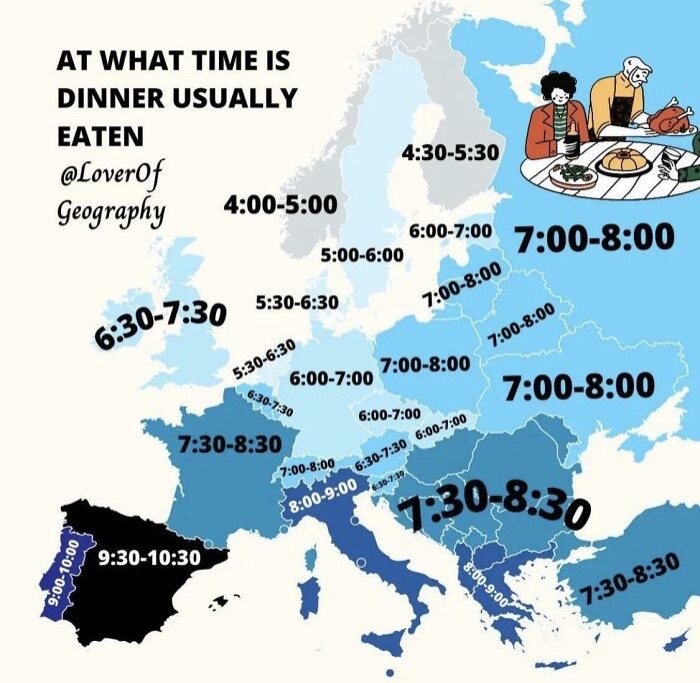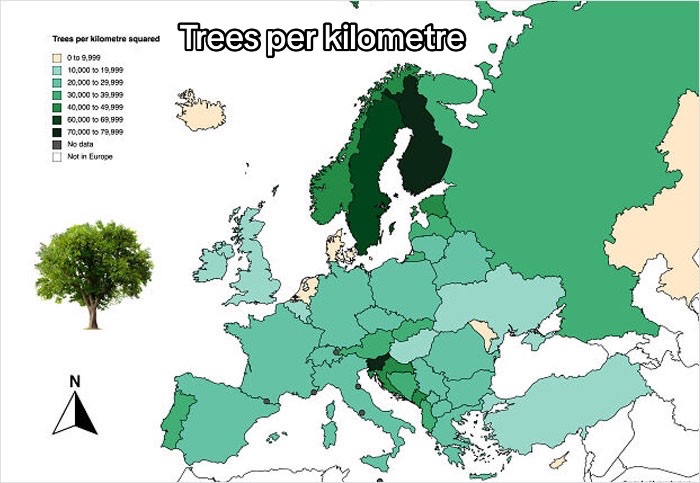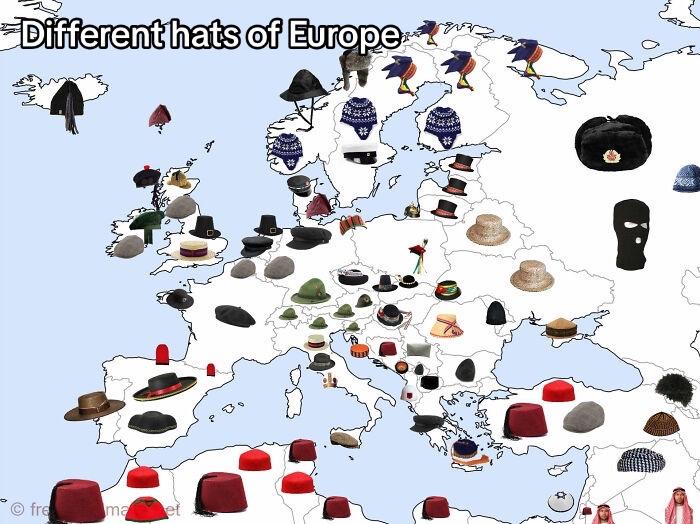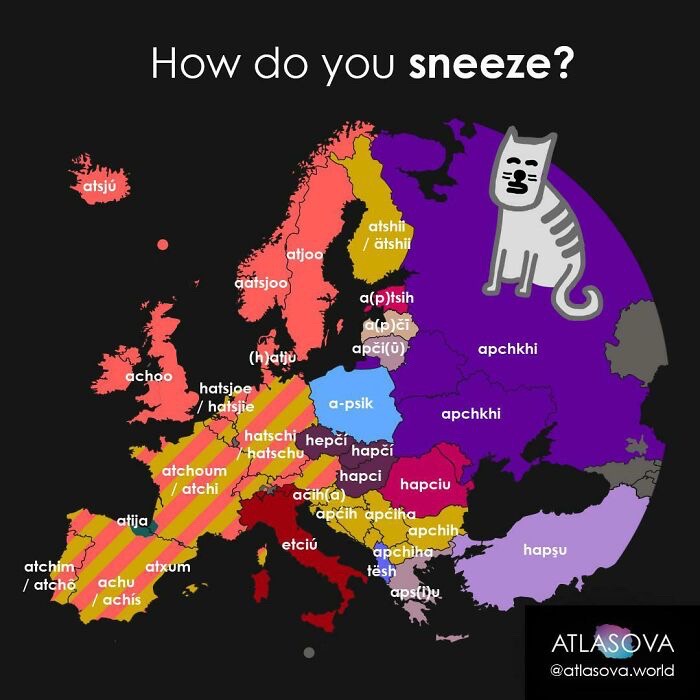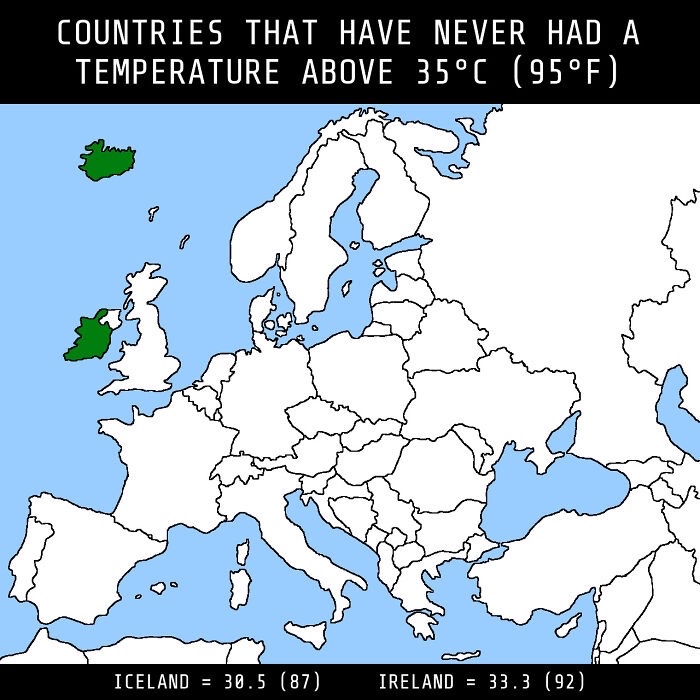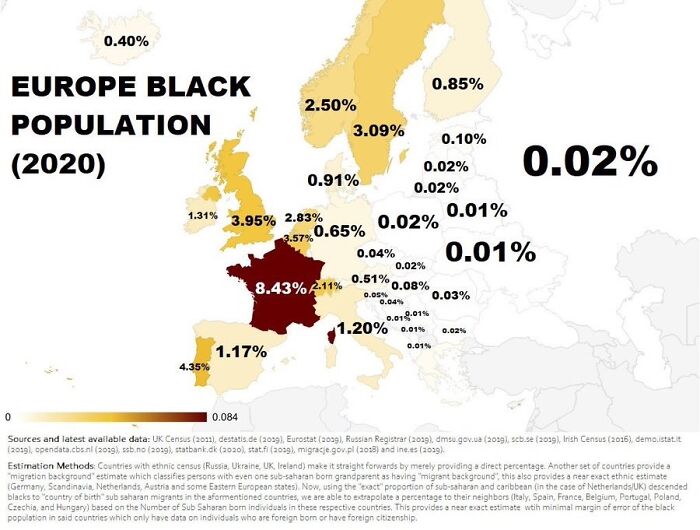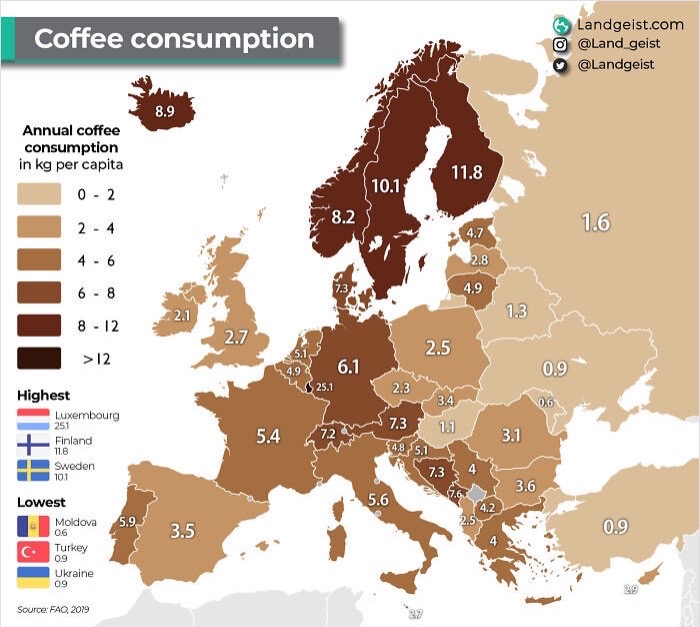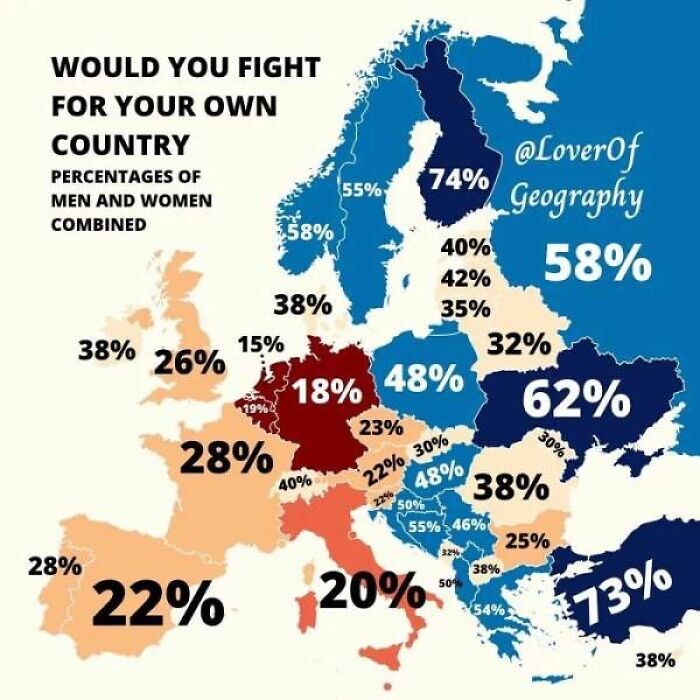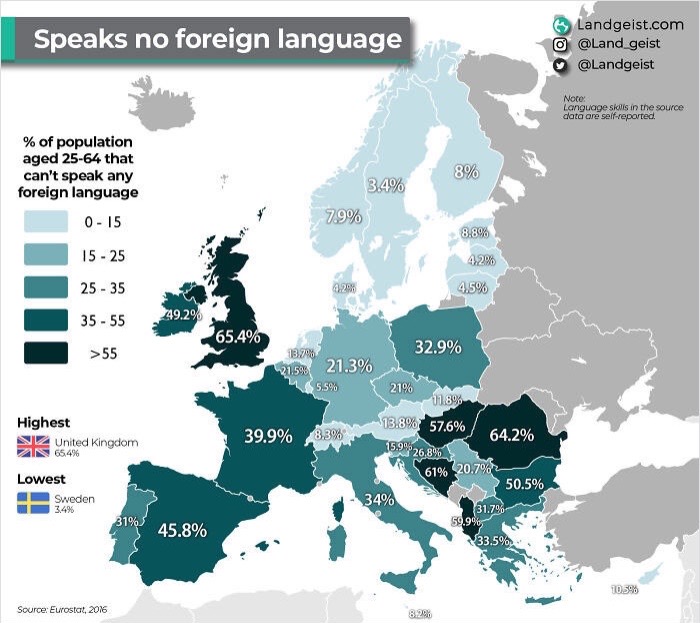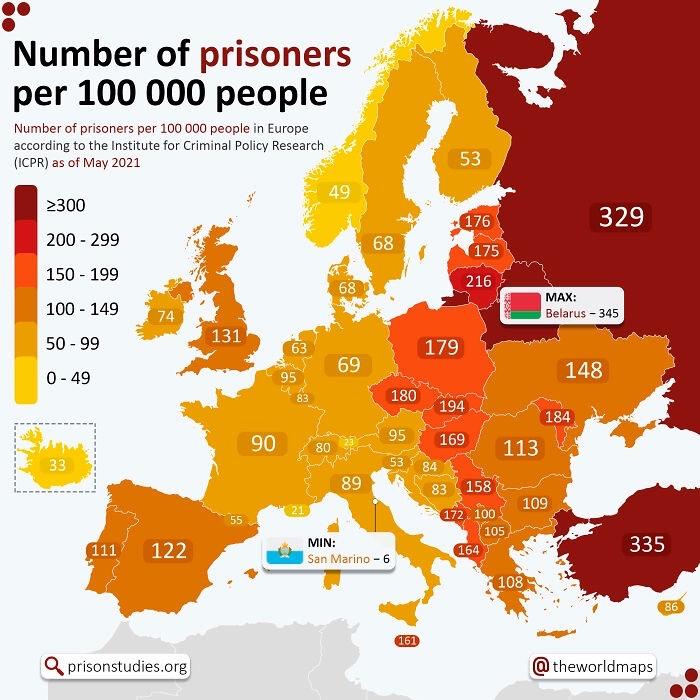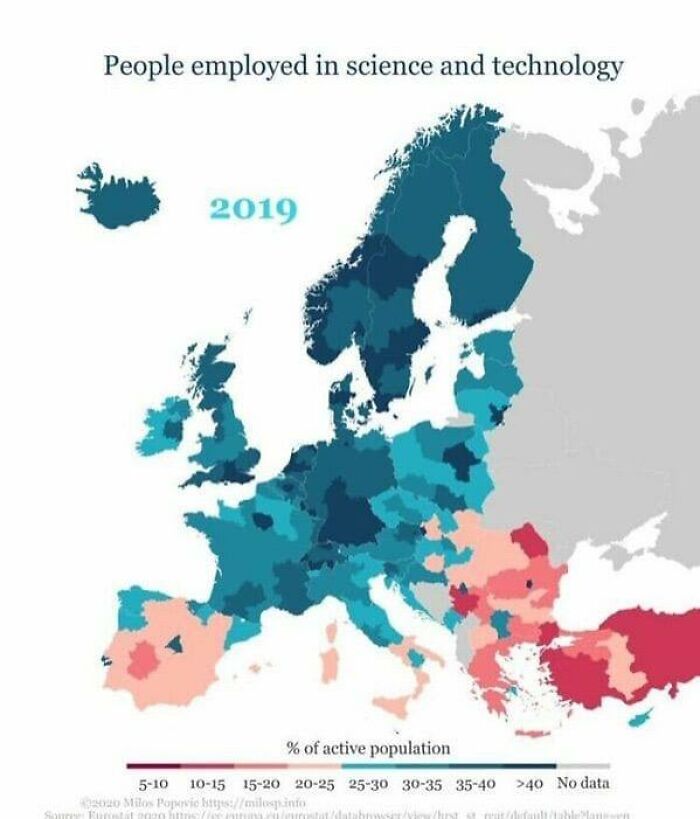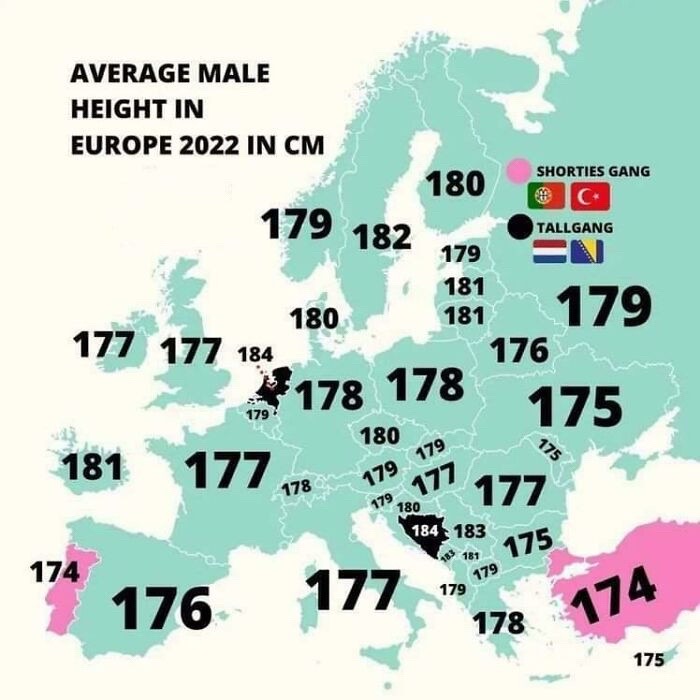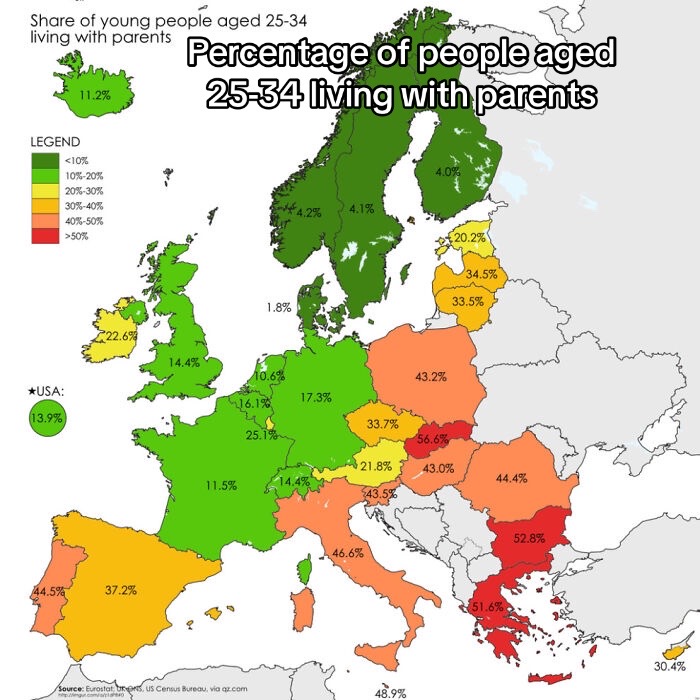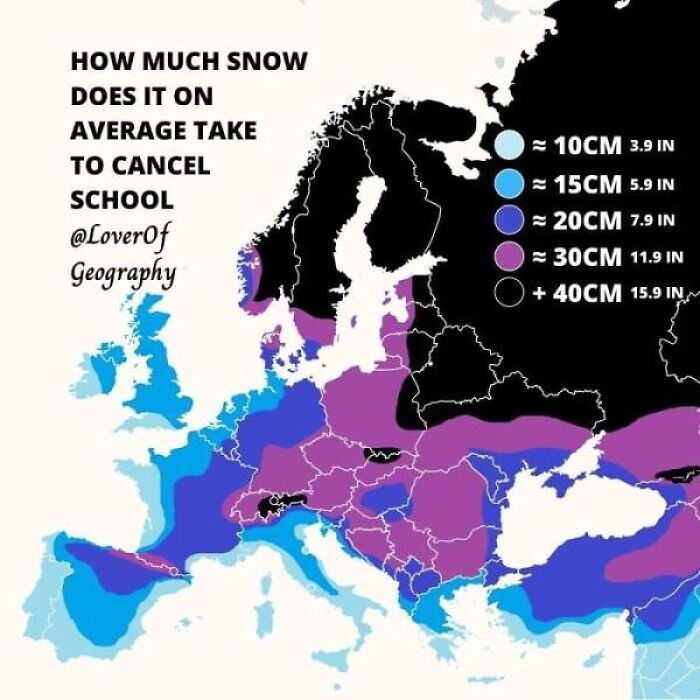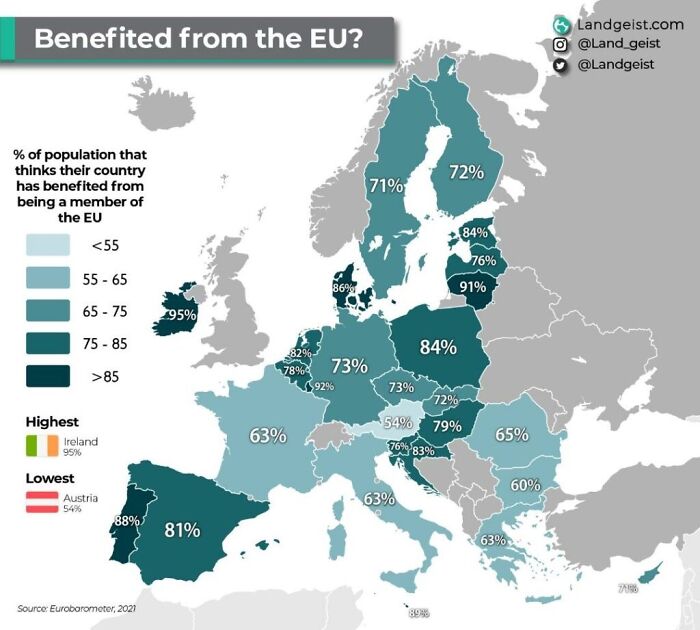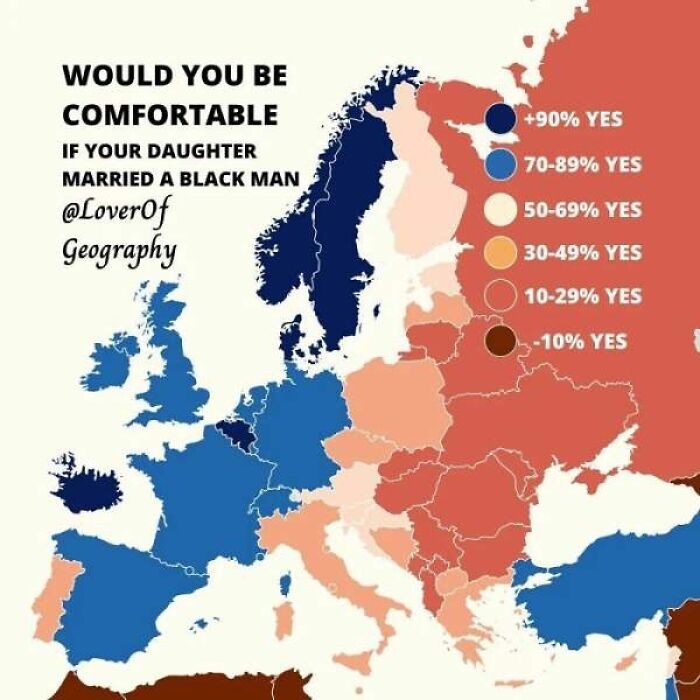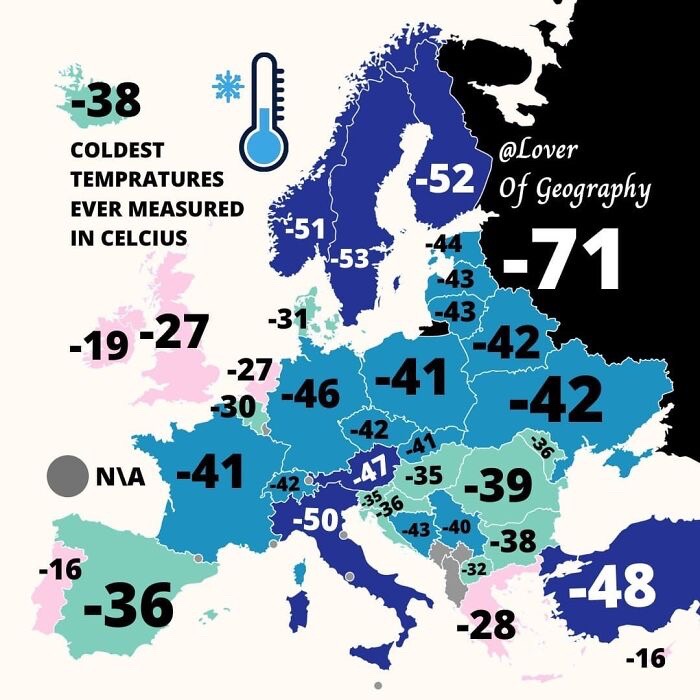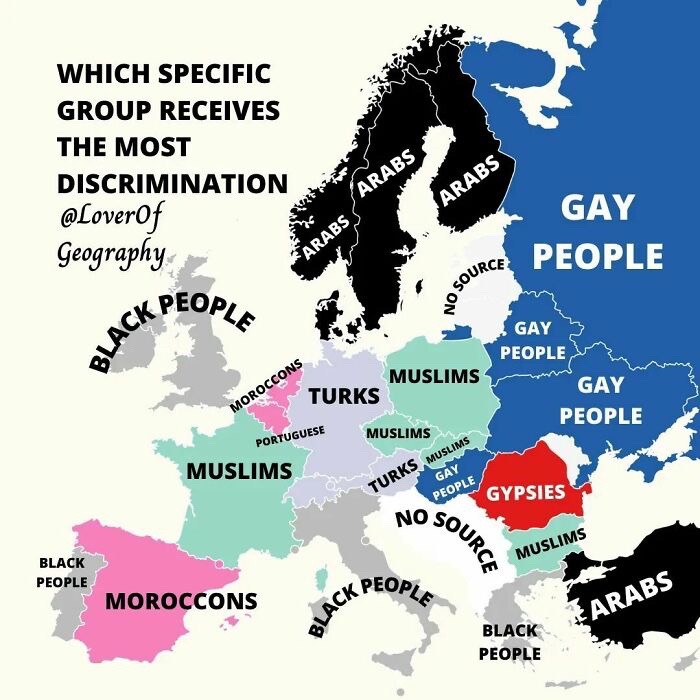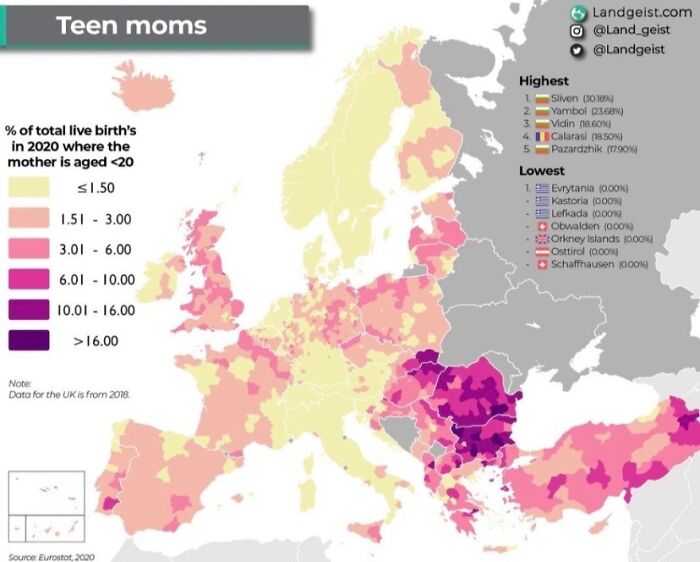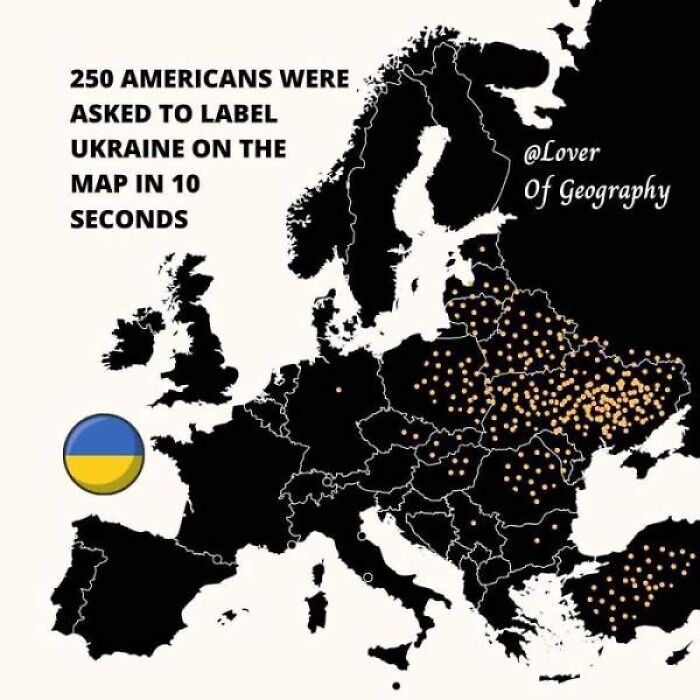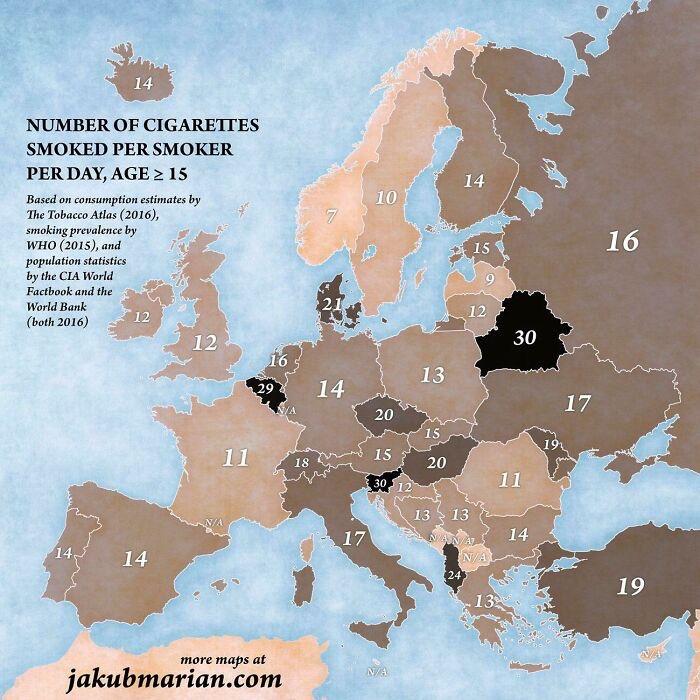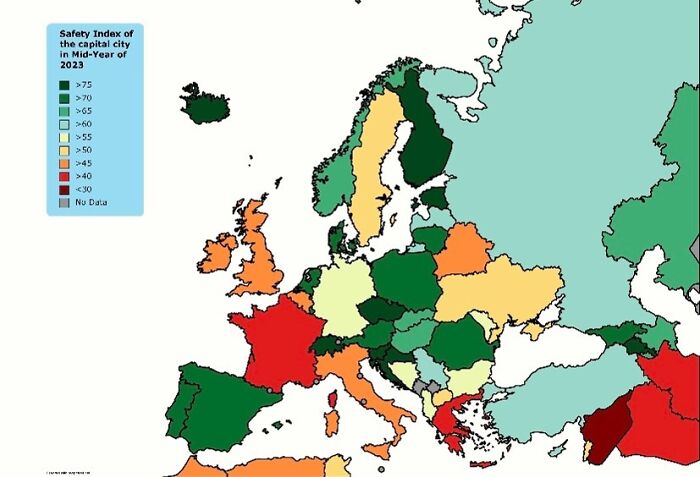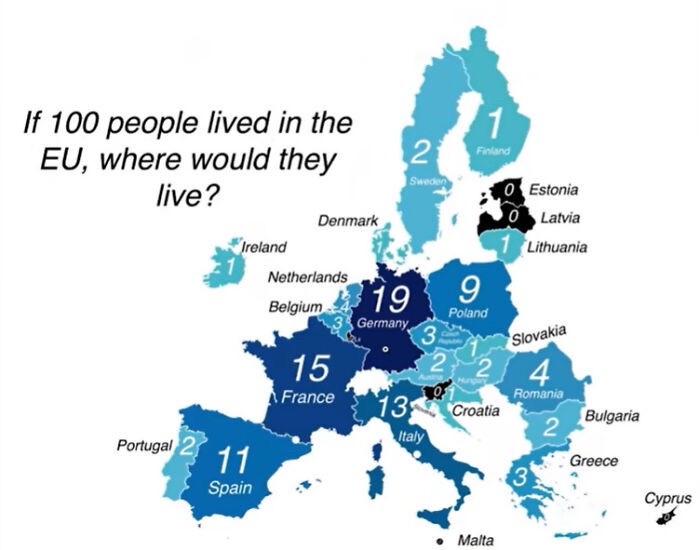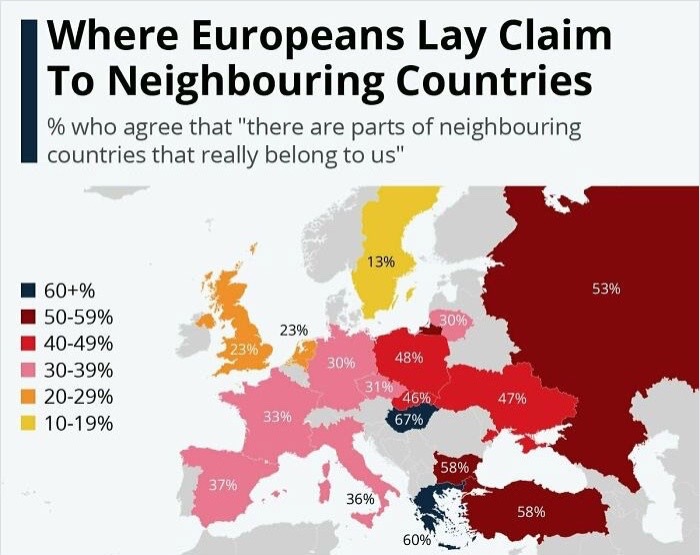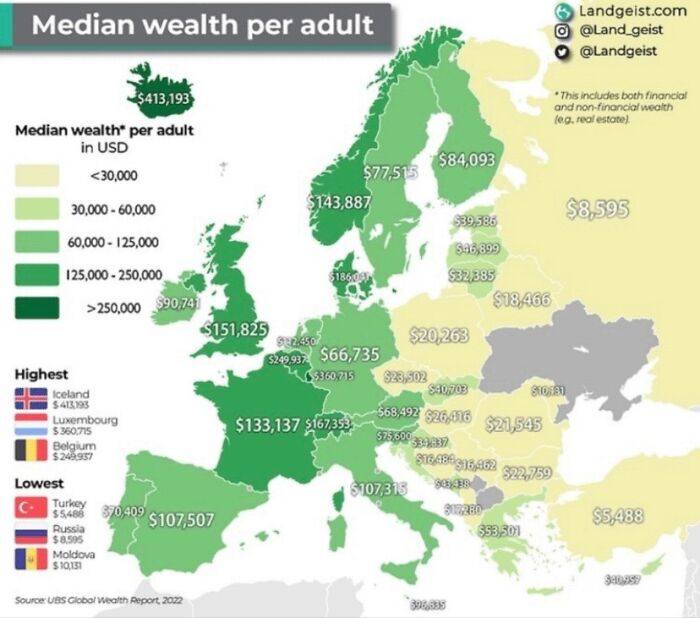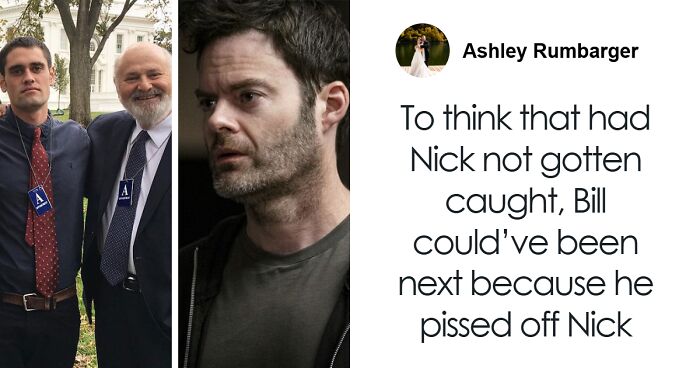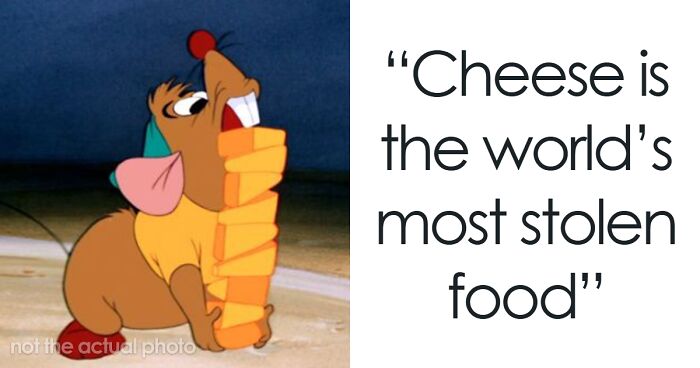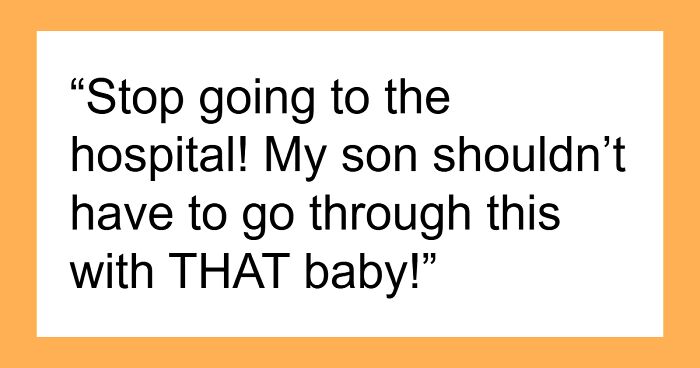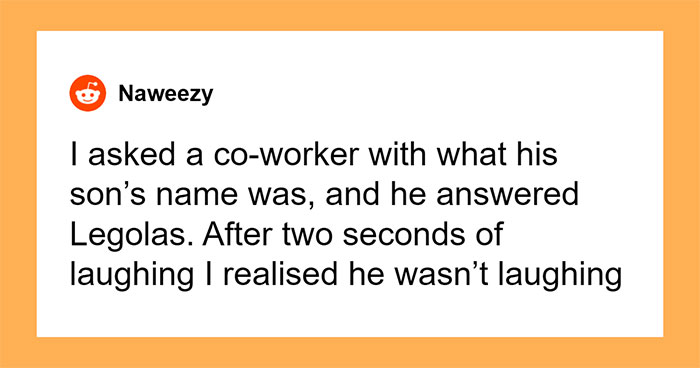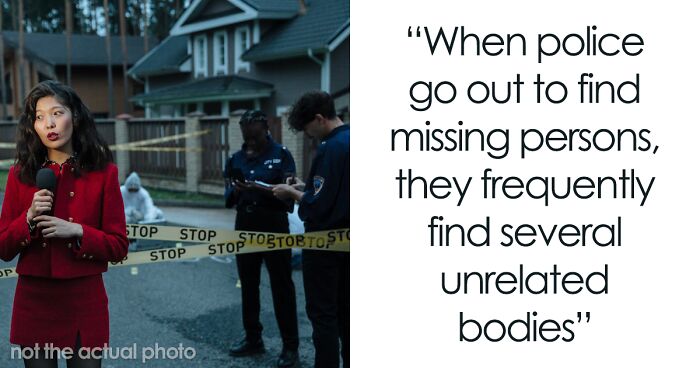We all have geography lessons in school. And while we learn many interesting things about the maps and geography in them, there's always room for improvement.
So, today, let's look at these interesting maps of Europe that we picked and found online. After all, there's no wrong time to learn something new. And who knows, maybe you'll end up using these facts somewhere (maybe a trivia night?), unlike some things you were taught at school.
More info: TikTok
This post may include affiliate links.
Mer..credi! in France because you start to say Merde! and realize there are kids around ;-))
Maps are leading us in nearly every step of our way. They are reachable to everyone - just a few presses and you can see Google or Apple Maps. But that wasn’t always the case.
The history of maps can be traced as far back as 5000 years ago. The first-ever maps were used to depict small areas in pictures. And there was no set of rules on how everything should be drawn, which made maps quite inaccurate.
Later, the map-making art was taken over by the Greeks and Romans. The most notable works of this mapping period were those of Claudius Ptolemaeus. He was a geographer, mathematician, and astronomer, who came up with longitude and latitude lines. And, well, that revolutionized European geographic thinking.
Ha, jokes on switzerland, the biggest, most popular and most expensive city isn't even the capital.
Milton Jones: why did I run up to doorbells and ring them, then run away? Just for the buzz...
Then, during the middle ages, there wasn’t much progress in the map-making scene. Most of the maps that were produced during this time were of monasteries, which were influenced by religious devotion. They were heavily decorated with angels and imaginary monsters.
However, the Islamic world made some progress in the map-making area. The most notable instance is of Al-Idrisi, an Arab scholar who produced numerous world maps and geography books that heavily influenced this scientific field.
After the Middle Ages, the invention of the printing press by Johannes Gutenberg pushed the monasteries out of the dominance of map production. Also, the printing process becoming more available resulted in the growth of major publishing houses. And they produced maps that were accessible to everyone, no matter their financial status.
Even more, improvements in mapping were brought about by the accessibility of public learning and the thirst for knowledge. Increasingly, maps started having more colors showcasing various aspects of the presented place.
Also, in the late 1700s, thematic maps started showing up; for example, those showing the spread of certain illnesses or the extent of a flood.
Now, the maps on our phones are made by using satellite systems and surveying techniques. With these tools, cartographers can measure everything with precision, which was never achievable before. And due to their precision, maps have become an irreplaceable aspect of nearly everyone’s life.
Did you learn something new from these maps? Share your discoveries with us in the comments!
Oh Dear, if this all goes tits up, I'm pretty sure Russia will go down the pan - so then it's goodbye Belarus and Serbia.
Fun short story. Company that outsourced to Switzerland wanted to enforce their policy to have at best 50% black workers, and then got very surprised and confused why this wasn't feasibly possible
For my country, yes ; for the cretins that run my country, no ; those people I'd rather put them in a hole in the ground and just fill it in whilst they're alive. Wars are not started by the people of a country, they are started by upstarts, despots and chancers using those people to fulfill their own deluded ambitions - think Putin and Netenyahu at the moment ; they won't win and people on both sides of their particular countries will suffer because of those two idiots unachievable delusions.
Depends on your definition of "speaks". UK schools teach foreign languages (which and whether it was compulsory varies over the years). However, they start late and are not very advanced by the time they finish. I did both French (5 years) and German (2 years) and I speak neither with any fluency.
The Conservative government that threw the baby out with the bathwater by having such a dumbed down referendum really, really f****d up the future of the UK for at least a generation. I even knew expats living in Spain who voted to leave who thought a deal could be brokered to allow them unlimited access to their properties only to find out that now, under the new 'agreement' they could only go to their European places for a limited time every year and would be penalised if they exceeded their quota ..... The general British public are a thick lot at the best of times, they should never have been given a vote on something as important as leaving Europe and all that that withdrawal entailed (not that the ruling party at the time had a f*****g clue either - bloody inbred toffs with no idea )
Doesn't this rather depend on the ethnicity of the people being asked?
Interesting maps.. but none of this stuff is really important for school
Interesting maps.. but none of this stuff is really important for school

 Dark Mode
Dark Mode 

 No fees, cancel anytime
No fees, cancel anytime 






